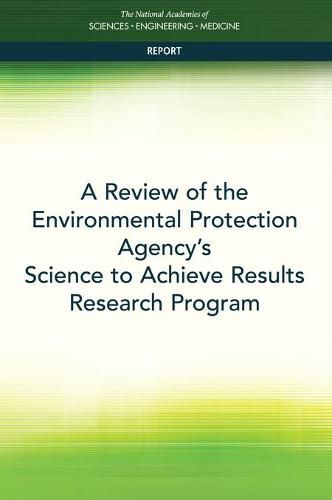Readings Newsletter
Become a Readings Member to make your shopping experience even easier.
Sign in or sign up for free!
You’re not far away from qualifying for FREE standard shipping within Australia
You’ve qualified for FREE standard shipping within Australia
The cart is loading…






Environmental research has driven landmark improvements that led to the protection of human and ecosystem health. Recognizing the value of knowledge generated by environmental research and the ingenuity within academic and nonprofit institutions, the US Environmental Protection Agency (EPA) created a program known as Science to Achieve Results, or STAR, in 1995. STAR is EPA’s primary competitive extramural grants program.
A Review of the Environmental Protection Agency’s Science to Achieve Results Research Program assesses the program’s scientific merit, public benefits, and overall contributions in the context of other relevant research and recommends ways to enhance those aspects of the program. This report also considers the conclusions and recommendations of a prior National Research Council review of the STAR program (2003), the STAR program’s research priorities in light of the nation’s environmental challenges, and the effects of recent STAR funding trends on obtaining scientific information needed to protect public health and the environment.
$9.00 standard shipping within Australia
FREE standard shipping within Australia for orders over $100.00
Express & International shipping calculated at checkout
Environmental research has driven landmark improvements that led to the protection of human and ecosystem health. Recognizing the value of knowledge generated by environmental research and the ingenuity within academic and nonprofit institutions, the US Environmental Protection Agency (EPA) created a program known as Science to Achieve Results, or STAR, in 1995. STAR is EPA’s primary competitive extramural grants program.
A Review of the Environmental Protection Agency’s Science to Achieve Results Research Program assesses the program’s scientific merit, public benefits, and overall contributions in the context of other relevant research and recommends ways to enhance those aspects of the program. This report also considers the conclusions and recommendations of a prior National Research Council review of the STAR program (2003), the STAR program’s research priorities in light of the nation’s environmental challenges, and the effects of recent STAR funding trends on obtaining scientific information needed to protect public health and the environment.